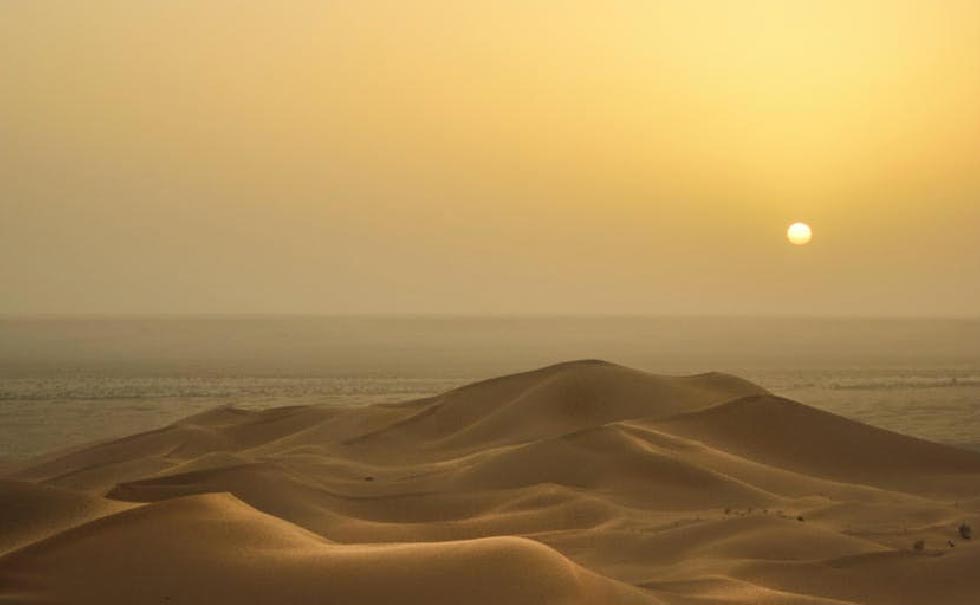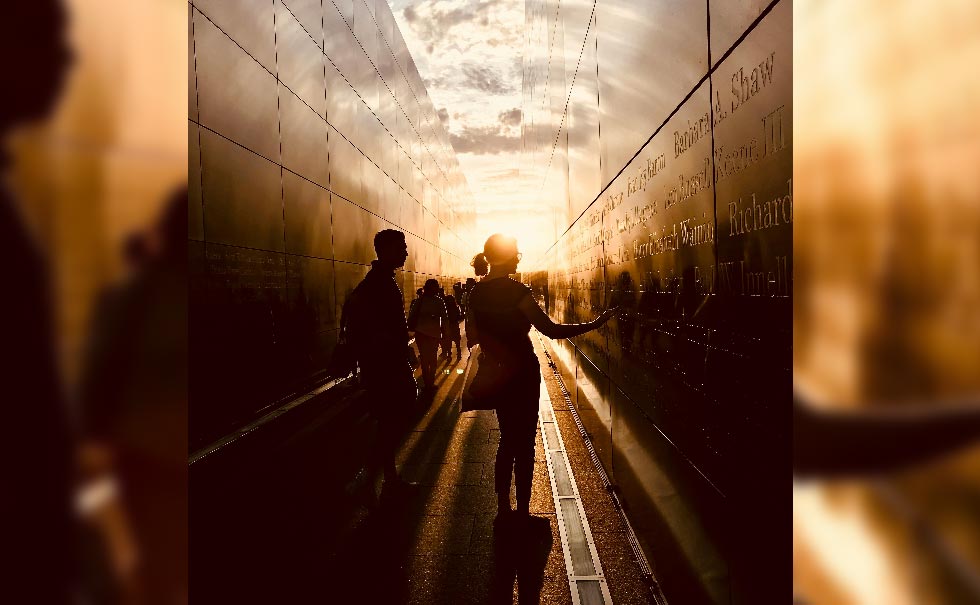Parshat Terumah
In a dynamic change from our previous Parsha in which the Torah dealt with the laws needed to formulate society we now begin to discuss the portable sanctuary known as the Mishkan known in many English translations as the Tabernacle.
The immediate feeling from the Parsha is the grandeur and complexity of the design of the structure of the structure as well as the items and ritual objects contained within it, such a monumental undertaking required artisans, craftsmanship and a deep knowledge of materials and how to work with them – the people are in a sense transformed, the labours and skills that previously they used within the context of enslavement are now utilized to serve Hashem and build a magnificent edifice to serve him.
The perhaps obvious theological question that many ask is important: “ does the Creator of universe require Gold, Silver, a Temple…?”, clearly such a philosophical statement seems strange and is arguably missing the central point of much of the Torah; the law was given to Humankind for their needs, Hashem being Infinite lacks for nothing, the Midrash teaches us the following profound idea[1]:
וְיִקְחוּ לִי תְּרוּמָה: זֶה שֶׁאָמַר הַכָּתוּב כִּי לֶקַח טוֹב נָתַתִּי לָכֶם (משלי ד, ב). אָמַר רַבִּי שִׁמְעוֹן בֶּן לָקִישׁ: שְׁנֵי פְרַקְמָטוֹטִין עוֹמְדִין זֶה עִם זֶה, אֶחָד בְּיָדוֹ מְטַכְסָא וְאֶחָד בְּיָדוֹ פִּלְפְּלִין. אָמְרוּ זֶה לָזֶה: בֹּא וְנַחֲלִיף בֵּינִי וּבֵינֶךָ. נָטַל זֶה אֶת הַפִּלְפְּלִין, וְזֶה הַמְּטַכְסָא. מַה שֶּׁבְּיַד זֶה אֵין בְּיַד זֶה, וּמַה שֶּׁבְּיַד זֶה אֵין בְּיַד זֶה. אֲבָל הַתּוֹרָה אֵינָהּ כֵּן, זֶה שׁוֹנֶה סֵדֶר זְרָעִים וְזֶה שׁוֹנֶה סֵדֶר מוֹעֵד, הִשְׁנוּ זֶה לָזֶה, נִמְצָא בְּיַד זֶה שְׁנַיִם וּבְיַד זֶה שְׁנַיִם, יֵשׁ פְּרַקְמַטְיָא יָפָה מִזּוֹ. הֱוֵי: כִּי לֶקַח טוֹב נָתַתִּי לָכֶם.
“That they take for Me an offering”[2]: The Torah teaches elsewhere in allusion to this verse:
“For I give you good doctrine; forsake ye not My teaching[3].
R. Simeon the son of Lakish explained this verse as follows: Once there were two merchants who were traveling together. One of them held a bolt of silk material in his hand, while the other held some pepper. They said to each other: “Let us exchange our merchandise.” One took the pepper and the other took the silk. What one of them had previously owned was no longer his, and that which the other had owned was, likewise, no longer his. With the law, however, this is not so. If one man studies Tractate Zeraim, and another Tractate Mo’ed, and they instruct each other, each possesses knowledge of both. Truly, is there any merchandise more valuable than this? “Therefore, For I give you good doctrine; forsake ye not My teaching.”
In general we can think of our sacrifices and donations both as a kind of nullification of egotistical self and also gain collectively as a community;
By giving to the Mishkan we gained a central focal point for our people to continue the dialogue with Hashem, in a similar way that as a community we build a synagogue:
Beyond the building and its ornate architecture and the often costly requirements for Sefer Torah, Siddurim and many more items, without the synagogue, a collective space belonging to everyone there is effectively no community – it is symbolically the transformation to being owned as slaves and having nothing of material worth to having something regal, made of the best gold and finery that is owned collectively by all.
This often prompts a second question, “surely God can be found anywhere!” – and that part is certainly true as this verse[4] and several us teach us:
הַשָּׁמַ֗יִם מְסַפְּרִ֥ים כְּבוֹד־אֵ֑ל וּמַֽעֲשֵׂ֥ה יָ֜דָ֗יו מַגִּ֥יד הָֽרָקִֽיעַ:
“The heavens recite the glory of G-d, and the sky tells of the work of His hands.”
Certainly, according to several schools of philosophical thought within Judaism, our experience of the natural world and even the human body itself are powerful metaphorical tools to help us perceive the existence of the Creator, within the Breslov Chassidic movement great emphasis is placed on personal prayer, this prayer is amplified by performing it within the profound beauty and solace of nature as Rebbe Nachman taught through his students[5]:
“As often as you can, take a trip
out to the fields to pray.
All the grasses will join you.
They will enter your prayers
and give you strength to sing
praises to Hashem..”
However, although we may find G-d wherever we are, Judaism is not only a religion of the individuals journey towards the Divine, but that of our families, communities and the entirety of the People of Israel – our need to create a House for G-d is not so we can find Him, but rather so we can find each other – the Torah is not only about individual morality and correction of soul but of the building of a community dedicated to a singular purpose, ethos and mindset – to love and serve Hashem our creator.
Ultimately this brings us to perhaps the more difficult religious experience for many, not trust in an unseen Creator, but a much harder and more subtle test of faith, trust in ourselves collectively:
Our laws at every level require us to believe this, that the Sofer has not made a mistake, that the Mikveh has been built correctly, that our Shechita is performed proper, the funds collected for Tzedakah and charitable purposes reach their destinations – All of this is based largely on an overriding principle of Dan L’chaf Zchut; translated (non-literally) as “believing the very best in people”.
Naturally, even a brief reading of history shows the very opposite to be true, and at times the evil humanity has inflicted upon each other in our wars and oppression of peoples is numbing to the senses, however the overarching moral of Torah Judaism is that we are moving towards a better tomorrow, that ultimately our belief in humanity is of equal paramount importance as is our faith in the Almighty – we cannot give up on humanity regardless of the darkness before us.
Unlike most temples of the ancient world, the Mishkan was portable, it journeyed with us through the desert towards the promised Land, we too, regardless of how fondly we feel towards our own comfortable Synagogues and places of worship know intrinsically that they only exist as a temporary step in our journey through this exile back to our ancestral land of Israel in a rebuilt Temple, our 3rd and final Beit Hamikdash.
May we see the end of our long exile soon in our days, we will then truly understand that although we move forwards from our own individual communities to a greater goal as a people that each and every community engaged in Torah has a unique light that will only be amplified in the time of redemption when we finally share a singular Temple for all Israel as the Talmud teaches[6]:
“In future time,” our Sages teach, “all the Synagogues and Houses of Study will be transplanted to the land of Israel – Rather than reducing this powerful metaphorical idea to a physical one, we can perhaps take comfort in knowing that our communities in exile are paving the way back home and that the Torah, prayers and love that we have generated for each other in our communities is as portable as the Mishkan and as equally relevant no matter where we find ourselves.
Shabbat Shalom,
Rabbi Jonathan Goldschmidt 2022 ©




